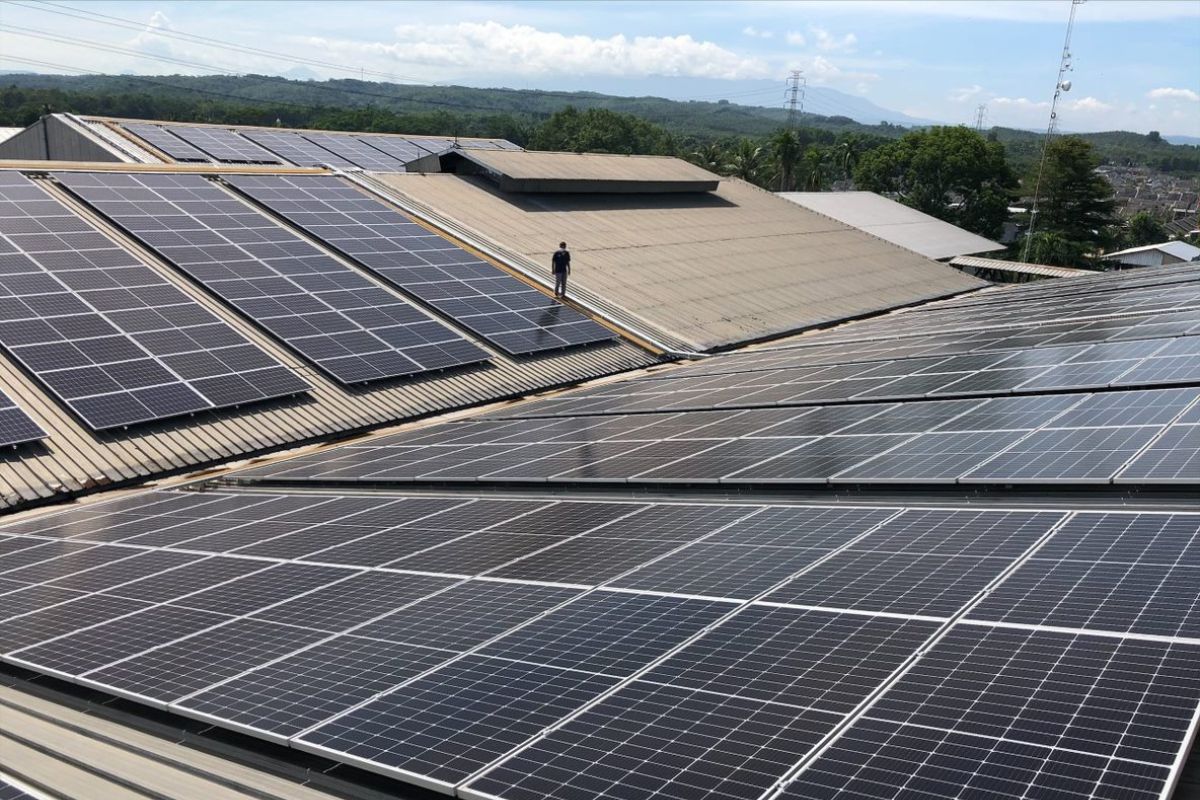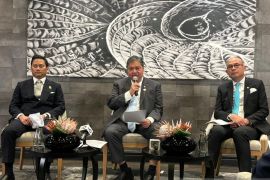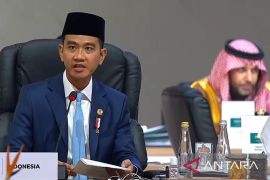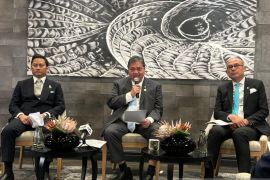Although the three priority issues are important to accelerate energy transition towards renewables, accessibility of renewable energy and involvement of stakeholders in the decision-making process should be highlighted.
This is since the G20 accounts for 80 percent of the global economic output and is responsible for 75 percent of the global greenhouse gas (GHG) emissions.
The energy sector is one of the largest emitters of greenhouse gases that had caused a rise in global temperature in the past decades due to relying heavily on fossil-based energy.
Collaboration becomes key to achieve a just energy transition.
Professor Yunita from Science 20 (S20) emphasized the importance of people, planet, and prosperity for just and undisrupted energy transition.
The statement was delivered during a working group meeting with Civil of Twenty (C20) Indonesia, along with Business 20 (B20), Think 20 (T20), and S20.
C20 Indonesia, along with B20, T20, and S20 discussed G20’s agenda on energy transition and to explore possible policy recommendations from these engagement groups for the G20 leaders, representing the perspective of businesses, researchers, scientists, and civil society.
Related news: Delving into natural gas' future in energy transition program
“Sectoral ego can be a stumbling block in taking climate action,” Prof. Yunita pointed out.
A transdisciplinary approach encompassing participatory collaboration, inclusivity, and communication among diverse actors is deemed necessary to address the challenges in energy transition.
As Professor Yunita highlights the significance of "people at the center," alternative energy resources must deliver equal benefits for all.
Representing B20, Oki Muraza pointed out that businesses face challenges on ways to grow without causing harm to the environment.
“Reducing climate-related risk of instability has become one of the key drivers for a company's climate action,” Muraza remarked.
Pertamina, as the lead of the Business 20 Task Force 3 on Environment, Sustainability, and Climate (ESC), has developed several green technology initiatives to increase the renewable energy mix for sources, such as geothermal, green hydrogen, and bioenergy.
Related news: Minister highlights Indonesia's support for energy transition at IGWEL
Muraza claimed that Pertamina has been able to lower emissions by 27 percent during the 2010-2020 period to support Indonesia’s Nationally Determined Contribution (NDC).
Moekti from Think 20 underscored that energy transition is no longer an option but a necessity.
“Achieving net-zero emissions requires a shift in our energy sources,” Moekti affirmed.
As energy transition needs financing, Moekti suggested that various forms of carbon pricing mechanisms, such as cap and trade, baseline and credit, and carbon tax, can generate revenues to be invested in clean energy.
International Coordinator of the Environment, Climate Justice and Energy Transition (ECE) Working Group of C20 Indonesia Sunwoo Vivian Lee urged the government to consider the risk of stranded assets from fossil-based fuels, as the global energy policy is rapidly shifting towards renewable energy.
Furthermore, she highlighted the importance of accessibility of renewable energy and green technology to accelerate the transition, as the capacity of developing countries is still far behind that of developed nations.
To achieve the 1.5 degrees Celsius target of the Paris Agreement, countries must work together to strengthen actions to reduce GHG emissions, starting with the energy sector.
Dr. Widhyawan Prawiraatmadja, one of the panelists present during the workshop, give his statements on energy security, noting that energy demand should be matched with affordable prices.
As a response for the speakers, Dr. Widhyawan also emphasized that state-owned enterprises (SOEs) should balance the mandate between bringing prosperity to the people and also sustaining the business itself.
Finally, the ECE Working Group of C20 Indonesia underlined the role of civil society in the decision-making process of the energy policy that integrates with the issue of environment and climate change.
Civil society lives on the frontline of climate change, and without a strong energy policy from global leaders to reduce GHG emissions, the livelihoods of people in rural areas, local communities, and indigenous people are in great danger.
G20 Leaders should take more actions along with the civil society while protecting the rights and freedom of speech of the people in order to ensure clean energy accessibility for all and supporting local initiatives through incentives.
Related news: Indonesia, Switzerland discuss sustainable energy cooperation at WEF
Comprehensive energy transition
Director-General of Oil and Gas at the Ministry of Energy and Mineral Resources Tutuka Ariadji stated that the Government of Indonesia had encouraged G20 member countries to conduct comprehensive and meticulous energy transition while facing various global challenges by taking into account competitiveness, cost, availability, and sustainability.
Ariadji remarked that the Russia-Ukraine conflict had put economic pressure on G20 members, especially with the increasing demand for energy in line with the population and economic growth. This phenomenon necessitates bigger efforts for energy transition.
The transition must be conducted comprehensively and carefully in various stages by considering competitiveness, cost, availability, and sustainability to ensure a smooth transition, Ariadji noted.
Apart from focusing on energy transition, G20 members must take concrete actions to improve mitigation mechanisms and resilient energy supplies, including in developing countries that have been particularly affected by the recent increase in energy prices.
Ariadji stated that a safe and resilient energy supply chain for all available energy sources was important for future energy security and achieving carbon neutrality targets.
Related news: Indonesia to focus on fair energy access in archipelagic countries
All G20 members, including Indonesia, have targeted to achieve net-zero emissions in 2060. In the long-term strategy, we mapped out the 2060 net-zero emissions through the National Grand Strategy of Energy (GSEN) that aimed at balancing clean energy transition with national energy security, he remarked.
The Indonesian government also realizes that cooperation with all parties is deemed necessary to ensure energy security. Through global cooperation, the use of cleaner energy can be increased and encourage innovative clean technologies, such as CCS/CCUS, to realize a reliable and sustainable energy transition.
In a bid to intensify international cooperation, Indonesia's Presidency in the 2022 G20 has established three pillars -- Global Health Architecture, Digital Economy Transformation, and Sustainable Energy Transition -- deemed relevant to tackle the current global challenges.
These three pillars are expected to actualize the main theme of the 2022 G20: Recover Together, Recover Stronger.
Furthermore, the sustainable energy transition pillar has set three main priority issues in the form of access, technology, and financing. These three priority issues are important aspects in responding to the interrelated challenges of economic growth, energy security, and climate change.
Related news: G20 presidency emblematic of global acknowledgment of Indonesia's role
Related news: Digital transformation discussed at G20 crucial for Indonesia: Indef
Editor: Fardah Assegaf
Copyright © ANTARA 2022










